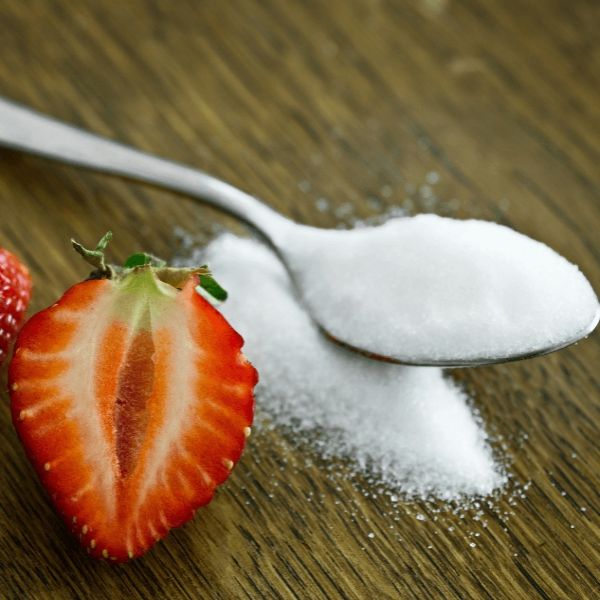Sucralose is a chlorinated sucrose derivative. This means it’s derived from sugar and contains chlorine. Making sucralose is a multistep process that involves replacing the three hydrogen-oxygen groups of sugar with chlorine atoms. The replacement with chlorine atoms intensifies the sweetness of sucralose.
Originally, sucralose was found through the development of a new insecticide compound. It was never meant to be consumed. However, it was later introduced as a “natural sugar substitute” to the masses, and people had no idea that the stuff was actually toxic.
In 1998, the FDA approved sucralose for use in 15 food and beverage categories, including water-based and fat-based products like baked goods, frozen dairy desserts, chewing gum, beverages and sugar substitutes. Then, in 1999, the FDA expanded its approval for use as a general-purpose sweetener in all categories of foods and beverages.
One small study in 17 people with severe obesity who didn’t regularly consume these sweeteners reported that sucralose elevated blood sugar levels by 14% and insulin levels by 20%.
Several other studies in people with average weight who didn’t have any significant medical conditions have found no effects on blood sugar and insulin levels. However, these studies included people who regularly used sucralose.
If you don’t consume sucralose on a regular basis, it’s possible that you may experience some changes to your blood sugar and insulin levels.
They may improve digestion, benefit immune function and reduce your risk of many diseases.
Interestingly, one rat study found that sucralose may have negative effects on these bacteria. After 12 weeks, rats that consumed the sweetener had 47–80% fewer anaerobes (bacteria that don’t require oxygen) in their guts.
Beneficial bacteria like bifidobacteria and lactic acid bacteria were significantly reduced, while more harmful bacteria seemed to be less affected. What’s more, the gut bacteria had still not returned to normal levels after the experiment was completed.
Products that contain zero-calorie sweeteners are often marketed as being good for weight loss.
However, sucralose and artificial sweeteners don’t seem to have any major effects on your weight.
Observational studies have found no connection between artificial sweetener consumption and body weight or fat mass, but some of them report a small increase in Body Mass Index (BMI).
A review of randomized controlled trials, the gold standard in scientific research, reports that artificial sweeteners reduce body weight by around 1.7 pounds (0.8 kg) on average.
Post time: Jun-05-2020
